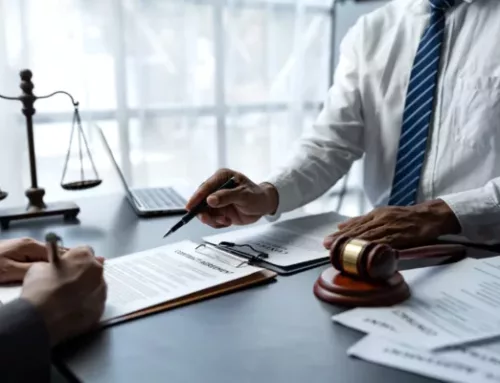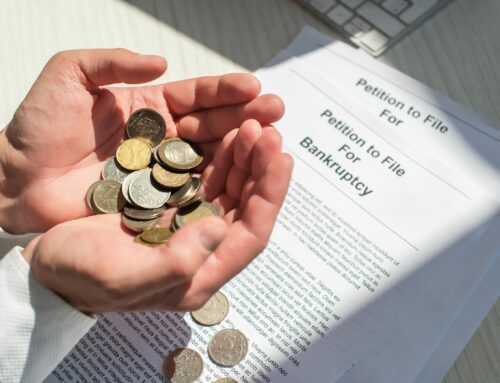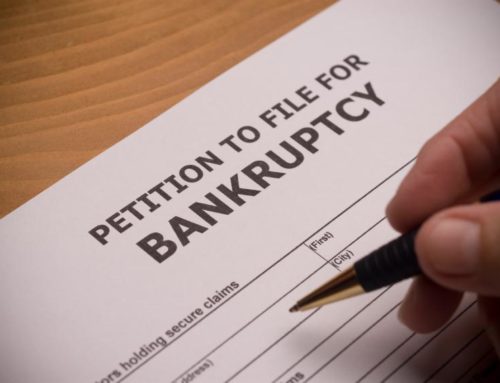The pandemic has brought financial hardship for many Americans. If you’re overwhelmed with medical debt, student loan debt, and credit card debt while collection agencies keep harassing you, filing bankruptcy may get you a reprieve from your financial problems.
If you’re considering bankruptcy, you must understand what exactly you’d be going through. The United States Bankruptcy Code provides different options for debtors, such as liquidation or reorganization, depending on their circumstances, goals, and financial situation. In this article, we’ll talk about bankruptcy Chapter 7 also known as straight bankruptcy.
If you’re struggling with debt and want another chance at a secure financial future, consult our Wheeling bankruptcy lawyers about which among the types of bankruptcy is best to eliminate debt for you.
Chapter 7 Bankruptcy Overview
Qualifying for Chapter 7
The bankruptcy means test determines whether you’re eligible for a Chapter 7 bankruptcy. It’s a calculation to determine whether your income is low enough for Chapter 7. If your income is too high, you’d have to look at other bankruptcy chapters.
Paperwork and Counseling
 Before going through the bankruptcy process, you need to take credit counseling within six months of the bankruptcy filing. There are exceptions to this requirement based on the debtor’s situation and circumstances.
Before going through the bankruptcy process, you need to take credit counseling within six months of the bankruptcy filing. There are exceptions to this requirement based on the debtor’s situation and circumstances.
The filer must fill out several forms to start the bankruptcy proceedings. Information you need for the forms includes income, assets, expenses, finances, and creditors. Upon submitting the bankruptcy petition, the bankruptcy court orders an automatic stay. This prevents any collection efforts from creditors, including wage garnishment or lawsuits.
It’s essential to fill out these forms accurately. Any mistake can be taken as bankruptcy fraud or will hinder you from gaining debt relief in filing for bankruptcy. Be sure to visit a West Virginia bankruptcy law firm to ensure your forms are 100% correct.
Appointment of a Trustee and Meeting of Creditors
The court will appoint someone called a “trustee” to look after the process. The trustee in bankruptcy will take a look at your assets and determine which can be used to pay off creditors. They will also schedule a meeting with your creditors. In this meeting, your finances are reviewed, and your petition is analyzed. Your creditors are allowed to ask as many questions as they want.
Repay Debt
As mentioned above, the bankruptcy trustee will analyze your assets and finances. You will get to keep your exempt property while your nonexempt property is liquidated for the benefit of your creditors. Exempt property refers to those needed to maintain basic living standards, such as your primary residence.
The Coronavirus Aid, Relief, and Economic Security (CARES) Act makes it so that pandemic-related relief won’t be included in your monthly income for pending bankruptcy cases.
Your liquidated assets will not be used to repay your debts equally. Some obligations have to be repaid before the rest. Here’s the repayment priority of your debt, starting with those that will be paid first:
- Unsecured priority debts (child support or tax debts)
- Secured debts
- Nonpriority unsecured debts
Discharge of Remaining Debt
A discharged debt means you don’t have any personal liability to pay it anymore. If a debt has been discharged, no creditor is allowed to collect on it. Some debts cannot be discharged, like child support, student loans, and income taxes, among other things. Talk to a bankruptcy lawyer to know whether your debt qualifies for a bankruptcy discharge under West Virginia bankruptcy laws.
Final Thoughts
Bankruptcies are a serious matter. After bankruptcy, you’ll tank your credit score and find it challenging to apply for credit. However, when you file for bankruptcy, you’ll also get a fresh start to rebuild your life from mountains of debt.
If you need help from a Wheeling WV attorney, our experienced lawyers at Thomas E. McIntire & Associates, L.C. are at your service. We can provide you with the assistance you need to become debt-free. We devote extensive time, energy, and attention to individuals pursuing Chapter 7 bankruptcy or Chapter 13 bankruptcy. With a proven record of results, clients can trust in the work that we offer to address their foreclosures and creditor harassment issues. Contact a Wheeling bankruptcy attorney now for a free consultation!





